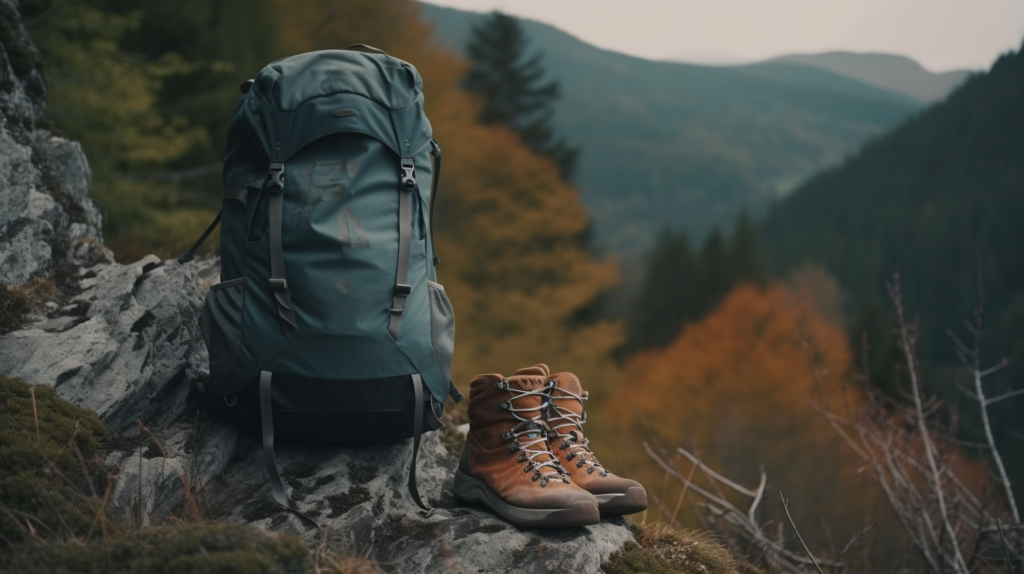
As the weather warms up and the great outdoors beckon, many adventure seekers are itching to hit the trails. Whether you’re a seasoned hiker or a newbie, having the right gear is essential to ensure a safe and comfortable journey. In this article, we’ll take a look at some of the must-have hiking gear for your next adventure.
Footwear:
The foundation of any hiker’s gear is a good pair of hiking shoes or boots. The right footwear can make or break your hiking experience. Look for shoes or boots that offer good ankle support and have sturdy soles with good grip. Some popular brands include Merrell, Salomon, and Keen.
Backpack:
A sturdy backpack is crucial for carrying all of your gear on the trail. Look for a backpack that has adjustable straps and plenty of compartments to organize your gear. Osprey and Deuter are popular brands for hiking backpacks.
Clothing:
Dressing in layers is important when hiking, as the weather can change quickly. Look for moisture-wicking fabrics that will keep you dry and comfortable, and bring along a waterproof jacket in case of rain. Brands like Patagonia and The North Face offer quality hiking apparel.
Navigation: A map and compass are essential tools for navigating the trails. Make sure to bring a map of the area you’ll be hiking in, and brush up on your compass skills before hitting the trail. You can also bring along a GPS device or use a hiking app like AllTrails.
Sun protection:
Spending time outdoors means exposure to the sun’s harmful rays. Protect your skin by wearing a hat, sunglasses, and sunscreen with at least SPF 30.
Water and snacks: Staying hydrated and fueled is important for a successful hike. Bring along plenty of water and snacks like trail mix, energy bars, and fruit.
Emergency supplies:
While we hope for the best on our hikes, it’s always best to be prepared for the worst. Bring along a basic first-aid kit, a whistle for signaling for help, and a multi-tool or knife for emergency situations.
In summary, a successful hiking trip starts with the right gear. Make sure to invest in quality footwear, a sturdy backpack, appropriate clothing, navigation tools, sun protection, water and snacks, and emergency supplies. By being prepared, you can enjoy the beauty of nature safely and comfortably.
Remember to also consider the specific conditions of your hiking trail. For example, if you’ll be hiking in a rocky or steep terrain, you may want to bring trekking poles to help with balance and stability.
Additionally, if you plan on camping overnight, you’ll need to bring along camping gear such as a tent, sleeping bag, and cooking supplies. It’s important to research the camping regulations and restrictions of the area you’ll be visiting, as well as obtaining any necessary permits. Read all the details and neccesary info about camping gear in my „Camping Gear Guide“
When shopping for hiking gear, it can be overwhelming with the number of options available. It’s important to invest in quality gear that will last for multiple hiking trips, rather than settling for cheaper, lower-quality options that may not hold up on the trail, except you only go for a hike 1-2 times a year.
Finally, it’s important to always practice Leave No Trace principles while hiking. This means leaving nature as you found it, and packing out all trash and waste. By doing so, we can preserve the natural beauty of our hiking trails for future generations to enjoy.
In conclusion, having the right hiking gear is crucial for a safe and enjoyable outdoor experience. From footwear to navigation tools to emergency supplies, each piece of gear plays an important role in ensuring a successful hike. By investing in quality gear, practicing Leave No Trace principles, and researching the specific conditions of your hiking trail, you can have a memorable and rewarding hiking experience.
If you’re new to hiking, consider joining a hiking group or going on guided hikes to gain more experience and learn from seasoned hikers. They can also provide valuable insights on gear and equipment that can enhance your hiking experience.
It’s also important to physically prepare yourself for a hike. Start with shorter and less challenging trails, and gradually work your way up to longer and more difficult ones. Strengthen your muscles and improve your endurance through regular exercise and conditioning.
Finally, always inform someone of your hiking plans, including your route, expected duration, and estimated time of return. This can help authorities locate you in case of an emergency.
Hiking can be an exciting and rewarding outdoor activity, but it requires proper gear, physical preparation, and safety precautions. By following these tips, you can enjoy a safe and enjoyable hiking experience while exploring the beauty of nature.
